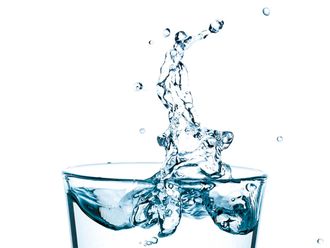
Muslims across the world will soon prepare to fast during the holy month of Ramadan. During this period, Muslims participating in Ramadan do not eat or drink anything during daylight hours and eat one meal (suhoor) just before dawn and another (iftar) after sunset.
This year, Ramadan is expected to start on May 15 or 16 depending on the lunar calendar, which is also the start of summer in the UAE. Average temperatures during the day will range from 35 to 50 degrees Celsius, so it is important to take healthy precautions if you’re fasting.
Health considerations of fasting
For most, Ramadan’s daily fast should not have any negative effect on their health; this includes individuals with chronic conditions including coronary artery disease, kidney disease, high blood pressure or diabetes. They can fast safely if their condition is well managed and uncomplicated. However, for people with a chronic condition — particularly those with complications or requiring medication for management — should consult their doctors to carefully plan and prepare for their fasting to avoid any problems or worsening of their conditions when they fast.
Fasting and weight loss
Fasting is gaining much attention for its benefits as a weight-loss strategy, particularly intermittent fasting. “It has been lauded for its health benefits, promoting protection against cardiovascular and neurodegenerative disease, anti-aging and improving cellular maintenance,” says Stephanie Karl, Clinical Nutritionist at Emirates Integra. However, popular wisdom also maintains that skipping meals will only lead to deprivation and binge eating.
Karl explains that there is mounting evidence to suggest that eating three or five small meals a day may not be important for weight loss and performance. Food quality matters more than food quantity. There is a big difference between the type of fasting that some people elect to do for health or fashion, compared with the month of fasting during Ramadan.
Ramadan fasting is to promote cleansing of the body and mind and to remember those who are less fortunate but because of its nature of sharing and bringing people and groups together, it can become a time of too-frequent feasting and the aspect of cleansing and detoxing gets lost.
Impact of fasting on the body
Fasting causes a biochemical trigger of the hormones glucagon and cortisol, which stimulates the release of fatty acids from fat tissue into the bloodstream. The fatty acids are taken up by the muscles and other tissues and broken down (oxidised) to produce energy in the cells. Eating triggers the hormone insulin into the blood to shuttle glucose into muscles and tissues to be used as energy. Excess glucose is converted into and stored as fat.
During fasting, the body switches from utilising carbohydrates to fats as its primary fuel and ensures a constant source of energy to the body. This is all very convenient as long as the body can actually make the metabolic switch. In science, it is called metabolic flexibility, or fat-adapted. If you are fat-adapted or metabolically flexible, you can switch easily from oxidising carbohydrates after eating to oxidising fat in the fasted state, and vice versa.
On the other hand, people who are said to be carb-adapted are metabolically inflexible, meaning that they are constantly burning carbohydrates and have trouble switching to fat oxidation. Fatty acids are still released from fat storage into the bloodstream but have diminished capacity to oxidise fatty acids in the muscle and other tissues. This is also closely linked with insulin resistance and weight gain.
Listen to your body
Researchers have been struggling to find consensus on this topic as well as how many meals are best and whether one should fast for periods of the day. Many cultures have established patterns of fasting and may well have slowly adapted to make this practice work as part of a healthy diet to manage weight and cleanse the body.
“My suggestion for non-Muslims who want to look at intermittent fasting or are trying to establish a fasting routine from the point of detoxification is to establish what works for you by starting to either fast with just fluids and add a fruit juice; or skip breakfast for a period of time and see how it affects your weight, performance, mood, productivity, digestion and appetite,” says Karl.
“Transition slowly as you are trying to establish it long term and accept that the predictors of success with fasting are individual and only you can really know if works well for you.”
Breaking your fast
The success of whatever fasting you follow will be helped by your body’s ability to adapt to produce energy from different substrates. For those who do not adapt well, this can increase the stress hormone cortisol, which is not beneficial to the body’s general well-being or weight loss and liver detoxification. Hence, during Ramadan some simple tips to keep in mind while fasting include:
1. Hydration
Drink plenty of fluids, especially after a 13-hour fast. Water is the best choice with something to boost glucose but not overwhelm blood glucose levels. A lightly salted soup and three dates along with water is perfect for replacing energy, fluids and salt balance, especially in hot climates.
2. Iftar
Iftar is the main meal and should be the same as a normal size meal taken during the rest of the year. Nutrient density is very important such as good-quality protein, complex carbohydrates and plenty of vegetables. This meal is renowned for its sweet treats during Ramadan and this is where some restraint and planning needs to be asserted. If you are enjoying these, you must watch the portion of rice, bread and potato taken at the meal, as it is very easy to flood the system with glucose.
3. Suhoor
Having breakfast before sunrise will take you through the day and needs a balance of complex carbohydrates such as oats or wholegrain bread, a small portion of fruit and protein such as laban, yoghurt, eggs or fish. Watch that you don’t overdo carbohydrates by drinking excess juice or too much sugary tea and coffee. It may be a good idea to skip coffee over this time if it interferes with sleep.
4. Sleep
If sleep is an issue during Ramadan, foods high in the amino acid tryptophan can help make melatonin and be taken before bed. Milk, laban, a small piece of banana and turkey meat are high in tryptophan.
Intermittent Fasting for non-Muslims
“Preliminary research has proved that intermittent fasting actually helps in reversing insulin resistance, decreasing inflammation, accelerating weight loss specifically through fat burning, optimising endogenous growth hormone production and decreasing the risk of chronic illness,” says Dr Lanalle Dunn, Founder of The Chiron Clinic, Dubai.
Fasting in Ramadan is actually similar to the typical 16:8 intermittent fasting schedule. With the 16:8 plan a person fasts for 16 hours and consume food and water in the duration of eight hours. However, during Ramadan, Muslims do not drink any beverages or water during the fasting window, which is permissible in an intermittent fasting regimen.












